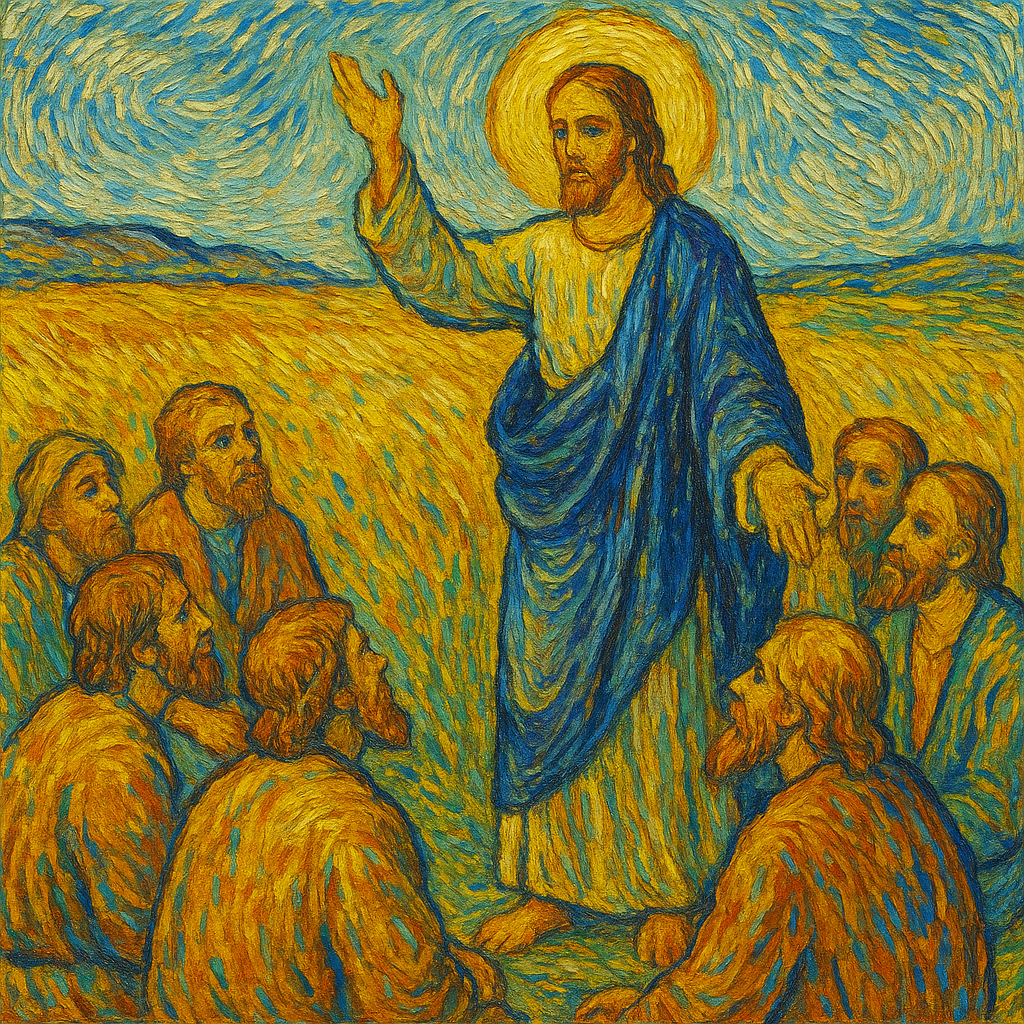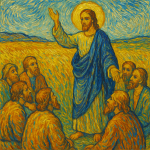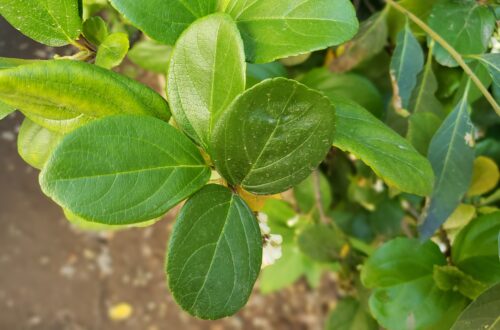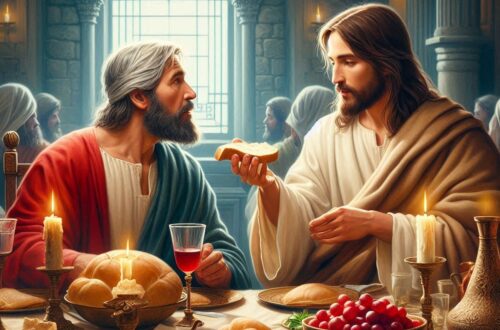
Luke 6,37-49

37 Do not judge, and you will not be judged; do not condemn, and you will not be condemned. Forgive, and you will be forgiven. 38 Give, and others will give to you. A generous measure, pressed and shaken down, and running over, will they pour into your lap; for the standard you use will be the standard used for you.”
39 Then, speaking in parables, Jesus said, “Can one blind person guide another? Will they not both fall into a ditch? 40 A student is not above their teacher; yet every finished student will be like their teacher. 41 And why do you look at the speck of sawdust in someone’s eye, while you pay no attention at all to the plank of wood in your own? 42 How can you say to your friend ‘Friend, let me take out the speck in your eye,’ while you yourself do not see the plank in your own? Hypocrite! Take out the plank from your own eye first, and then you will see clearly how to take out the speck in your friend’s. 43 There is no such thing as a good tree bearing worthless fruit, or, on the other hand, a worthless tree bearing good fruit. 44 For every tree is known by its own fruit. People do not gather figs off thorn bushes, nor pick a bunch of grapes off a bramble. 45 A good person, from the good stores of their heart, brings out what is good; while a bad person, from their bad stores, brings out what is bad. For what fills someone’s heart will rise to their lips. 46 Why do you call me ‘Master! Master!’ and yet fail to do what I tell you? 47 Everyone who comes to me and listens to my teaching and acts on it – I will show you to whom they may be compared. 48 They may be compared to a person building a house, who dug, and went deep, and laid the foundation on the rock. Then, when a flood came, the river swept down on that house, but had no power to shake it, because it had been built well. 49 But those who have listened and not acted on what they have heard may be compared to a person who built a house on the ground without any foundation. The river swept down on it, and the house immediately collapsed; and great was the crash that followed.”
Hello everyone, I am kiki. Chinese name of our second phase of the program is “读经大讲堂”. The English name is “Bible study”.
We will adopt a relaxed also enjoyable learning mode to take you into a new learning world. Each time I will make a personal summary and analysis from the perspective of a learner, and then Sister Ingrid will help me conduct in-depth learning and problem discussions with everybody.
I hope that such an interesting and interactive process can bring new knowledge experience to you all. The following is my interview with sister on related issues. Today is the thirteenth lecture on the Gospel of Luke.
Everyone is welcome to leave a message in the comment area for discussion!
2.My summary of Luke thirteenth -time study:
Well, everybody! Firstly, is still my today’s personal study summary.
After spending the whole night praying on a mountain, Jesus picked twelve close followers and called them “apostles.”
Their names included Peter, Andrew, James, John, Philip, Matthew, Thomas, and even Judas Iscariot, who later betrayed him. `
Jesus then stood on a flat hill with a huge crowd from all over—his disciples plus people from nearby towns.
Folks brought sick friends and anyone troubled by evil spirits to him, and everyone was healed. People pressed forward because Jesus’ power flowed out and cured them. `
Next, Jesus taught what we now call the Beatitudes: he blessed those who are poor, hungry, sad, or even hated for doing right, promising them future joy and reward.
But he warned that the rich, the satisfied, and those praised by everyone already have their reward. `
Then he gave radical advice: love your enemies, do good without expecting anything back, and be as merciful as God.
He said don’t judge others—if you judge, you’ll be judged the same way. He used the image of “good trees” bearing good fruit to show that our actions reveal what’s in our hearts.
Finally, he compared people who obey his words to builders who dig deep and build on rock—when storms come, their houses stand. But those who hear and don’t obey are like houses built on sand that collapse in a flood.
Now let Ingrid sister make a go further summary.
3.Sister’s comment from my studying summary:
Jesus tells us here not to judge others, because the right to judge a person belongs to Jesus when he will sit on the big white throne.
Only he knows the circumstances why a person committed a mistake and only he knows the moment, when a person accepted Jesus as personal savior and got saved and was written in the book of life or refused Jesus and eliminated of the book of life.
Jesus knows our whole life and he knows if the apparently bad person next to you will repent the next day and convert into a Christian brother or sister or if the apparently nice sister will turn the back to Jesus.
We have to remember, most people who were healed by Jesus shouted “Crucify him” when he stood in front of Pilate, and so he knows the people, but we not. And after the sermon of the mountain, many disciples turned away from him.
Jesus closes the teaching about judging with the words about fully training. Paul writes the same in one epistle, that a full trained disciple will judge all, but he will not be judged.
So, we should not reach out for to be able to judge people, we always will fail, we should reach out, to become fully trained by Jesus.
In the trans curs of the teaching, Jesus says, that we should measure with grace and he warns us of hypocrisy.
For not to become victim of bad people or false teacher, he recommends, to look at their fruits, what their life is telling to us. And he closes the sermon of the mountain with the parable of the house on the rock.
When we hear and do what Jesus teaches, our house is built on the rock and will persevere in all kind of weathers.
If we hear but not do what Jesus tells us, we have the house build on sand and when hard weathers come, it will fall down and be destroyed.
- Q list part: base on Luke 13th items:
Okay. Base on above bible study content, now let me ask sister some related questions.
We hope the following questions can be helpful to our brothers and sisters who have just become Christians.
1.Why did Jesus spend all night praying before choosing the twelve apostles?
It is important to pray before an important decision.
2.What does it mean that “power came out from him and healed them all”?
Jesus was like a well at a central place. The people came to him from all the 4 cardinal directions in the area and since he was the Son of God, he had the power to heal them all.
3.Why are the poor and hungry called “blessed” in Jesus’ teaching?
In Matthew it is written, the poor in the spirit and the hungry for righteousness.
But I can imagine, that Jesus says it here, because if we are poor and hungry, we are more dependent on him that the rich and wealthy people.
When life is not easy for us, we keep our eyes fixed on Jesus who meets our daily needs and we know that the things we have come from his hands and not by our own efforts.
4.How is being hated for doing right a reason to “rejoice and leap for joy”?
Jesus says, that the people will be do with his disciples the same as they did with him.
When we are persecuted and hated and they see us as they saw him, we know that we are true disciples.
5.What does “love your enemies” look like in real life? Give an example.
There were Corrie and Betsy ten Boom in the German carcel and a place there they were torturing women in the second world war, because the family of them were hiding Jewish people in their home.
Corrie had a harder character, but her sister Betsy, who died in the place, prayed while she was working for the people who forced her to work hard.
Corrie could in the end leave the place and she has forgiven the Germans who killed her father and the rest of her family and prayed for them.
6.Why does Jesus warn against judging others before fixing our own faults?
It is very easy to look at the faults of other people, especially when there is an issue there the question is, whose fault caused bad circumstances.
When Adam and Eve eat from the forbidden fruit, Adam blamed Eve that she has given to him and Eve blamed the sneak, that it has betrayed her.
The good question is, what would have had happened when Adam would have been able to say frankly: Lord, forgive me, I have eaten from the forbidden fruit, even you told me I should not do it.
We do not live in the garden Eden today, but it is a human debility to blame others, when we should take responsibility of our own fault.
7.How do our “fruits” (actions) show what’s in our “heart treasure”?
Sometimes I meet people who are shining by grace and their fellowship with God.
You see if a person takes drugs and you see if somebody drinks.
And if you pay attention, you see, if a person is a false prophet, because if somebody does not respect the teaching of the bible, it is a bad fruit, too.
8.In the house‑building story, what represents the rock and what represents the sand?
The rock is Jesus which means, that it costs to be a good disciple and you have to be trained every day by bible reading and prayer and the sand is the easy way, there you make no sacrifice, just enjoy your life without thinking on God.
9.Have you ever experienced a “storm” in life that tested your foundation? What happened?
There were several storms in my life, health issues, family issues and much more, but when you are on the rock, you can persevere.
Something we have to know is, the storms always come, they are normal. The only difference is, are we falling down or is our house on a solid ground which will not fall down.
10.Which part of these teachings do you find hardest to follow—and why?
I think it is hard to be happy, when others hate you. In the western world where I live now, there we can assemble as Christian community without restrictions, but I heard some days ago about the ministry “Voice of the martyrs”, people who suffered hard for to be Christians and I really admire them, that they persevered in such horrible times.




